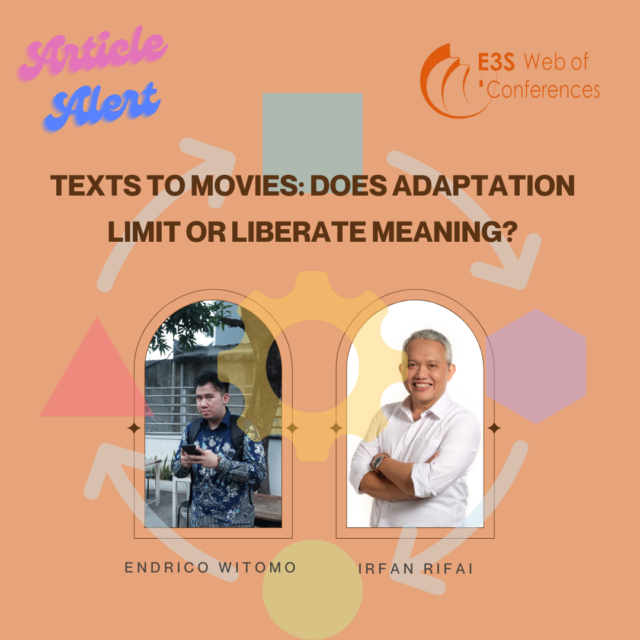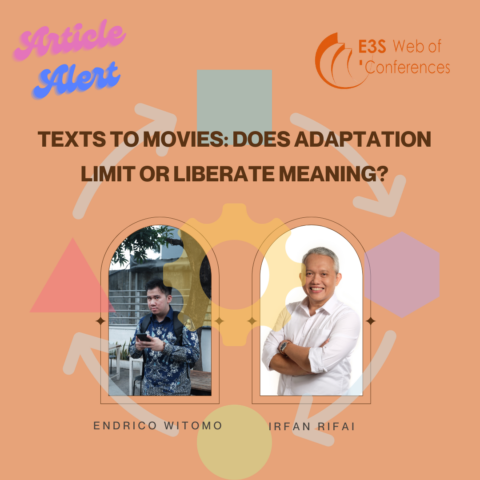Texts to Movies: Does Adaptation Limit or Liberate Meaning ?
There is a debate over the measure of a successful literary work adaptation. One party argues that a successful adaptation follows the originality of the story so the viewers will not label the adaptation as “unfaithful” to the original work. However, the other party suggests that an adaptation should not follow the original story and that it should become a new version of the original work.
These debates indirectly discuss whether an adaptation should limit the interpretation of the original story when adapting or giving freedom when interpreting the meaning of the original work to the adapted work.

Following the debate, this research aims to explore the process of a short story adaptation to a short movie to reveal the changes of meaning as portrayed by the text and the movie by using semiotics theory. Observation and interview were used to gather data from the producers of both text and short film during the production of the short film to understand the author’s and the adapters’ interpretation of the story.
The result of this research shows that turning the colours mentioned in the written work into visual was one of the major changes that took place in the short film production and in the written work.
This research concludes that an adaptation liberates the meaning of a story by turning a single mode story into a multimodal story that represents rich interpretations and visual representations.
Full article : https://www.e3s-conferences.org/articles/e3sconf/pdf/2023/63/e3sconf_icobar23_01089.pdf



Comments :